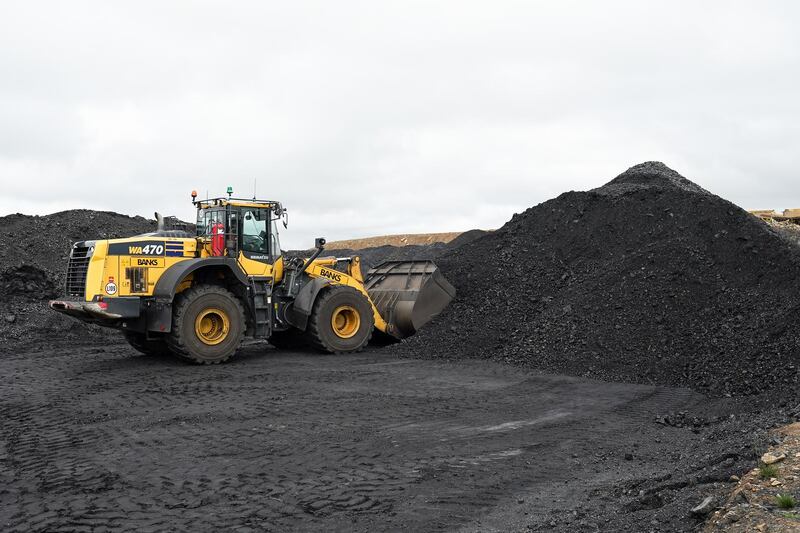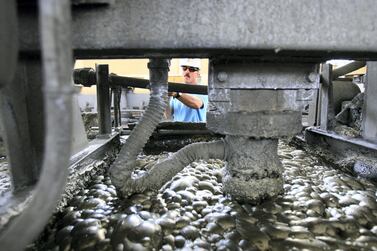One of England’s last coal mines will close on Monday as renewables and imports become more important to the UK energy-generating market.
The Bradley surface mine in County Durham, north-east England, is set to extract its last coal after a proposed expansion plan was rejected last month on environmental grounds.
Employer Banks Mining said the decision and the wider fall in regional industry activity in a traditional heartland would put 250 skilled jobs at risk.
Gavin Styles, managing director at Banks Mining, said most the workforce was from the local community.
“I am hugely frustrated, angry and sad to have to tell my skilled, hard-working and loyal team at Bradley that we will no longer be able to employ all of them, even though there is still significant demand from British industry for the coal and fireclay that they produce,” he said.
Coal use – which fuelled the Industrial Revolution – in the UK has dropped rapidly in recent years and comprised 2.8 per cent of primary energy demand in 2019 compared with 4 per cent in 2018 and 18 per cent in 2013.
The demise of a superpower
However, government data released from the first quarter of this year showed that coal took a 3.8 per cent share in electricity generation.
Much of the fossil fuel comes from aboard – 73 per cent in 2019 – but Mr Styles said the UK should rely on its own sources.
“While British industry still needs coal, it is obvious that it is better for our climate and for our jobs to mine it here in the UK, rather than exporting our jobs and increasing global greenhouse gas emissions by relying even more on importing coal over thousands of miles from Russia, the USA and Colombia,” he said.
In June, Britain reached nearly 68 days without burning coal for electricity. According to the Office of National Statistics, there has been a 17 per cent fall in the amount of energy used from 1998-2015 as the use of renewables grows.
For the first quarter of 2020 renewables represented 47 per cent of total electricity generation in the UK.
The Drax power station in Yorkshire announced earlier this year that it will stop burning coal from March 2021 and is already using sustainable wood pellets.
A coal mine in Derbyshire in central England is still in operation.








